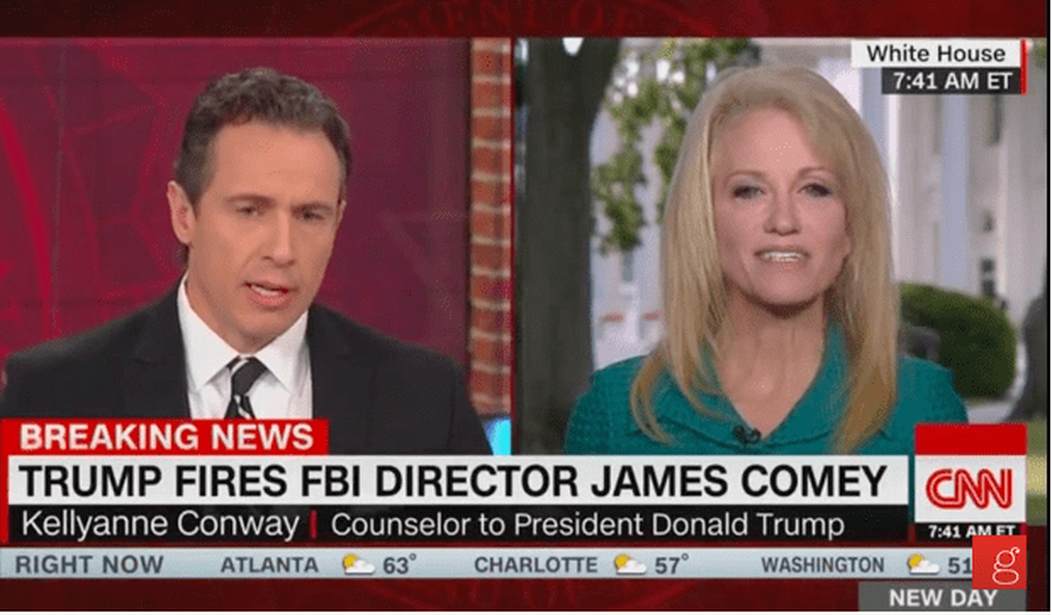The California Independence Campaign moved from the fringe of Golden State society to almost the mainstream following President Trump’s electoral triumph in November.
As PJM reported, it was a glorious time. As soon as they learned Donald Trump would be their president, tens of thousands of people began joining the Calexit movement for a ballot initiative to break California away from the United States.
It all came crashing down in April when Louis Marinelli, president of the California Independence Campaign, not only admitted his fondness for Russia, but he also announced he was moving to the former Soviet Union because of his “frustration, disappointment, and disillusionment with the United States.”
“From the beginning, I have pointed out the trouble I bring to the table with my political background and my history in Russia, a country I have grown to love,” Marinelli said.
“I have found in Russia a new happiness, a life without the albatross of frustration and resentment towards one’s homeland, and a future detached from the partisan divisions and animosity that has thus far engulfed my entire adult life,” Marinelli added. “Consequently, if the people of Russia would be so kind as to welcome me here on a permanent basis, I intend to make Russia my new home.”
With that, Marinelli pulled back the ballot proposal he had been pushing since 2014.
However, a month later, the movement was back with new leadership — the California Freedom Coalition — and a new willingness to negotiate with the Trump administration to turn California into a “fully functioning sovereign and autonomous state.”
The coalition filed a proposed constitutional amendment that would remove the word “inseparable” from the California Constitution’s declaration that the state is “an inseparable part of the United States of America.”
However, it should not be assumed the California Freedom Coalition wants total freedom. The proposed amendment holds out the possibility the state could be “sovereign and autonomous” without actually breaking away from the U.S.
Stephen Gonzales, the president of the California Freedom Coalition, told the Sacramento Bee the amendment would also open the door for negotiation. It would give the state’s governor the freedom to do a deal with Washington for the independence of California.
Gonzales said this new proposal would be much more appealing to conservative voters than the first Calexit initiative, which he admitted was “secession or nothing.”
“We have taken a different route, which we think will have far more support across the political spectrum,” Gonzales said.
If a statewide survey of voters conducted by the Institute of Governmental Studies (IGS) at UC Berkeley is to be believed, Gonzales just might be on to something.
The survey, which was released in March, shows most Californians were already fed up with the job Donald Trump was doing as president. Most also “believe that the changes in laws and policies that his administration is proposing will negatively affect California overall and in many specific policy areas,” a Berkeley IGS statement read. “The largest proportions of voters feel the state will be negatively affected in areas relating to the rights of minorities, the environment, healthcare, international trade and women’s rights.”
Here’s the kicker: Even though most California voters surveyed were disgusted with Donald Trump 90 days into his administration, a majority (53-47 percent) also told Berkeley IGS that negotiation would be better than secession.
It isn’t that Californians have an undying love for the U.S. The voters who were surveyed said compromise would be better than taking a chance on the state losing federal funding.
The California Freedom Coalition is going to have to collect more than 585,000 valid voter signatures to get the group’s proposal in front of the electorate in 2019. Gonzales said they were willing to spend $2 million to $3 million in a 12-month campaign to convince voters the Freedom Coalition’s proposal was the right path for California.
Just as the Berkeley IGS survey showed the California Freedom Coalition voters thought it would be better to let the state’s governor do an independence deal with Washington than to do an outright secession, it also showed Gonzales his troops might need to spend every dime of their campaign war chest to win at the ballot box.
“Voters also oppose by a greater than two-to-one margin (68 percent to 32 percent) a proposed ballot initiative that seeks to have California declare its independence from the U.S. and become a separate country,” the Berkeley IGS survey showed.
“While there are huge partisan differences in Californians’ views of Trump and the effect his policies will have on the state, there is bipartisan opposition to the idea of California becoming a separate country,” the survey concluded.
As daunting as this task might seem, the self-exiled leader of the original Calexit movement held out hope that someday “occupied California” would be a sovereign state.
“When that day finally comes, as it will, I shall look forward with great satisfaction to return to California and to live once again under our bear flag,” Louis Marinelli wrote. “Until then I will continue to serve as the representative of the Republic of California to Russia.”








Join the conversation as a VIP Member